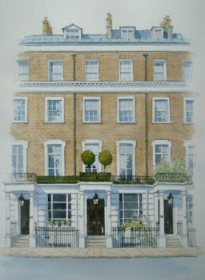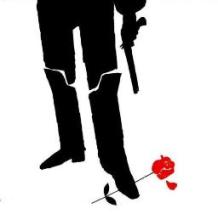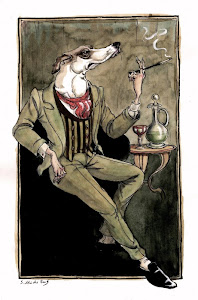 "Well, it's eighteen months or so ago since I first met Sir Henry Curtis and Captain Good, and it was in this way. I had been up elephant hunting beyond Bamangwato, and had had bad luck. Everything went wrong that trip, and to top up with I got the fever badly. So soon as I was well enough I trekked down to the Diamond Fields, sold such ivory as I had, and also my wagon and oxen, discharged my hunters, and took the post-cart to the Cape. After spending a week in Cape Town, finding that they overcharged me at the hotel, and having seen everything there was to see, including the botanical gardens, which seem to me likely to confer a great benefit on the country, and the new Houses of Parliament, which I expect will do nothing of the sort, I determined to go on back to Natal by the Dunkdd then lying in the docks waiting for the Edinburgh Castle due in from England. I took my berth and went aboard, and that afternoon the Natal passengers from the Edinburgh Castle transhipped, and we weighed anchor and put out to sea.
"Well, it's eighteen months or so ago since I first met Sir Henry Curtis and Captain Good, and it was in this way. I had been up elephant hunting beyond Bamangwato, and had had bad luck. Everything went wrong that trip, and to top up with I got the fever badly. So soon as I was well enough I trekked down to the Diamond Fields, sold such ivory as I had, and also my wagon and oxen, discharged my hunters, and took the post-cart to the Cape. After spending a week in Cape Town, finding that they overcharged me at the hotel, and having seen everything there was to see, including the botanical gardens, which seem to me likely to confer a great benefit on the country, and the new Houses of Parliament, which I expect will do nothing of the sort, I determined to go on back to Natal by the Dunkdd then lying in the docks waiting for the Edinburgh Castle due in from England. I took my berth and went aboard, and that afternoon the Natal passengers from the Edinburgh Castle transhipped, and we weighed anchor and put out to sea. Among the passengers who came on board there were two who excited my curiosity. One, a man of about thirty, was one of the biggest-chested and longest-armed men I ever saw. He had yellow hair, a big yellow beard, clear-cut features, and large gray eyes set deep into his head. I never saw a finer-looking man, and somehow he reminded me of an ancient Dane. Not that I know much of ancient Danes, though I remember a modern Dane who did me out of ten pounds ; but I remember once seeing a picture of some of those gentry, who, I take it, were a kind of white Zulus. They were drinking out of big horns, and their long hair hung down their backs, and as I looked at my friend standing there by the companion-ladder, I thought that if one only let his hair grow a bit, put one of those chain shirts on to those great shoulders of his, and gave him a big battle-axe and a horn mug, he might have sat as a model for that picture. And, by the way, it is a curioas thing, and just shows how the blood will show out. I found out afterwards that Sir Henry Curtis, for that was the big man's name, was of Danish blood. He also reminded me strongly of somebody else, but at the time I could not remember who it was.
The other man, who stood talking to Sir Henry, was short, stout, and dark, and of quite a different cut. I suspected at once that he was a naval officer. I don't know why, but it is difficult to mistake a navy man. I have gone shooting trips with several of them in the course of my life, and they have always been just the best and bravest and nicest fellows I ever met, though given to the use of profane language.
I asked, a page or two back, what is a gentleman? I'll answer it now : a royal naval officer is, in a general sort of a way, though, of course, there may be a black sheep among them here and there. I fancy it is just the wide sea and the breath of God's winds that washes their hearts and blows the bitterness out of their minds and makes them what men ought to be. Well, to return, I was right again ; I found out that he was a naval officer, a lieutenant of thirty-one, who, after seventeen years' service, had been turned out of her majesty's employ with the barren honor of a commander's rank, because it was impossible that he should be promoted. This is what people who serve the queen have to expect : to be shot out into the cold world to find a living just when they are beginning to really understand their work, and to get to the prime of life. Well, I suppose they don't mind it, but for my part I had rather earn ray bread as a hunter. One's half -pence are as scarce, perhaps, but you don't get so many kicks. His name I found out— by referring to the passengers' list—was Good—Captain John Good. He was broad, of medium height dark, stout, and rather a curious man to look at. He was so very neat and so very clean shaved, and he always wore an eye-glass in his right eye. It seemed to grow there, for it had no string, and he never took it out except to wipe it. At first I thought he used to sleep in it, but I afterwards found that this was a mistake. He put it in his trousers pocket when he went to bed, together with his false teeth, of which he had two beautiful sets that have often, my own being none of the best, caused me to break the tenth Commandment. But I am anticipating."
H. Rider Haggard, King Solomon's Mines (1885)





















No comments:
Post a Comment